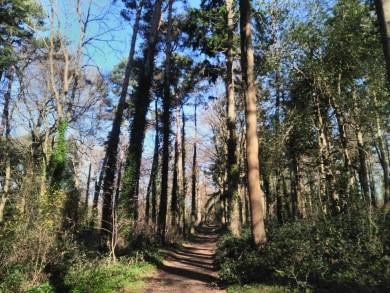Today marked history as we witnessed children across the globe striking for action against climate change. As this coverage shows, many are desperate for governments to make change happen now.

“The year 2078, I will celebrate my 75th birthday. If I have children maybe they will spend that day with me. Maybe they will ask me about you. Maybe they will ask why you didn’t do anything while there still was time to act. You say you love your children above all else, and yet you are stealing their future in front of their very eyes.”
– Greta Thunberg (speaking at UN Climate Change Conference 2018).
If you would like to hear more from Greta, have a look here at her TED talk.
We understand that major progress will only be made possible if truth is spoken to power. Whilst we, as educators, may not have the capacity to change policies and priorities, we do have the capacity to speak truth to young people. There is power in that.
But how can this be done? We need to communicate a sense of urgency but without panic…
…and we also need to meet the requirements of the National Curriculum!
So here are some ideas of how issues affecting our planet can be explored in the context of teaching required primary science content.
- identify, name, compare and group together everyday materials on the basis of their properties
Why not do this exploration through discussing what can be recycled and why recycling is necessary?
- identify that most living things live in habitats to which they are suited and describe how different habitats provide for the basic needs of different kinds of animals and plants, and how they depend on each other
Why not take the opportunity to discuss how the needs of animals, including humans, can’t be met if conditions aren’t right. What’s the impact of global warming?
- observe changes across the 4 seasons
Why not also consider the record breaking temperatures we have just experienced in February…Do some investigating into why the climate has been changing in recent years.
- identifying scientific evidence that has been used to support or refute ideas or arguments
Why not have a look at the data surrounding climate change?
Climate change is not a topic covered in the Primary Science curriculum, but there are many areas providing opportunities to explore and investigate this topic- developing awareness of this global issue whilst also supporting the development of scientific understanding.
Finally, WHY NOT GO OUTSIDE?! Spending so much time in the woods lately has given me a connection and a care for our planet that I doubt can be achieved just by reading or hearing about it.
If we want people to care, they have to be there…

References
Ballantyne, R. and Packer, J. (2009) Introducing a fifth pedagogy: experience-based strategies for facilitating learning in natural environments’ Environmental Education Research 15 (2)
Borunda, A. (2019) Kids striking against climate change: ‘We’re fighting for our lives’
Connect4Climate. (2018) Greta Thunberg full speech at UN Climate Change COP24 Conference
Department for Education. (2015) National curriculum in England: science programmes of study.
Guardian News. (2019) Students around the world go on climate strike
TEDxTalks. (2018) School strike for climate – save the world by changing the rules | Greta Thunberg | TEDxStockholm
Vera, S. (2019) Photograph of crying planet
